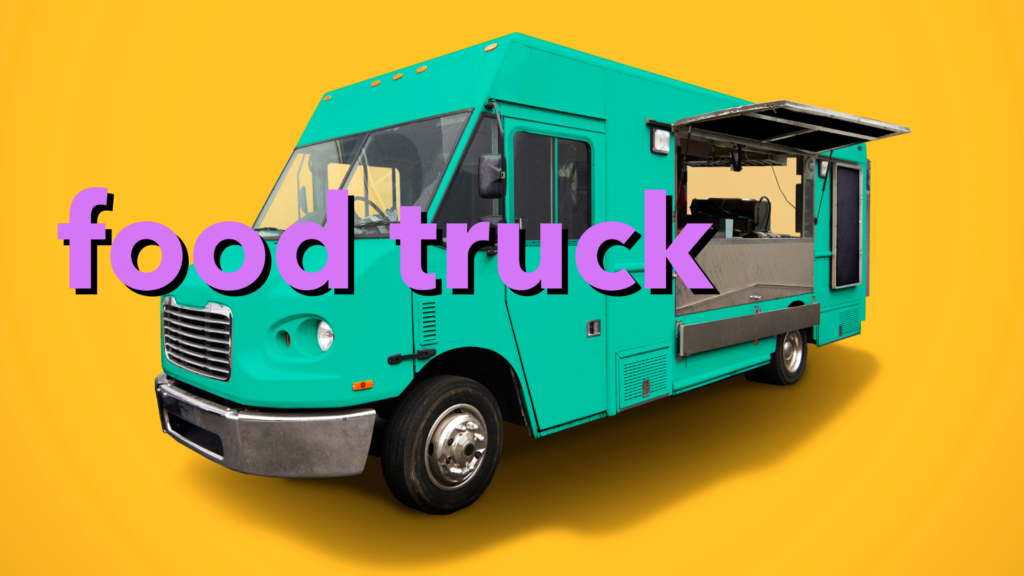The food truck industry has seen a significant rise in popularity over the years, with more and more entrepreneurs opting for this type of business model. As a result, competition within the industry has become intense, making it crucial for food truck owners to implement effective marketing strategies. In this comprehensive guide, we will cover everything you need to know about food truck marketing, including understanding the industry, developing a solid marketing plan, and implementing effective marketing ideas and SEO strategies to help your food truck business stand out from the rest.
Understanding the Food Truck Industry
Food trucks have become increasingly popular in recent years, and for good reason. They offer a unique and exciting food experience that can’t be found in traditional brick-and-mortar restaurants. The food truck industry has grown rapidly, with entrepreneurs taking advantage of the low start-up costs, flexibility, and creative freedom that food trucks offer.
The Rise of Food Trucks
The rise of food trucks as a popular food service option can be attributed to their flexibility and ability to cater to different types of customers. Whether you’re looking for a quick bite on the go or a gourmet street food experience, food trucks have something for everyone. They offer a wide range of cuisines, from classic street foods like hot dogs and tacos to more unique and innovative dishes like Korean BBQ tacos and lobster rolls.Food trucks have also become popular for their ability to cater to special events like weddings, corporate events, and festivals. They offer a fun and unique food experience that can make any event more memorable.
Key Players in the Food Truck Market
The food truck market is made up of different players, including mobile food vendors, operators, and catering companies. Mobile food vendors are the most common type of food truck business, offering a variety of street foods to customers. Operators are businesses that manage multiple food trucks, while catering companies offer food truck services for special events and private parties.Understanding the different players in the market can help you identify potential competitors, improve your business strategies, and develop new marketing opportunities. By staying up-to-date on industry trends and changes, you can position your business for success in this competitive market.
Challenges and Opportunities
While the food truck industry presents many opportunities for entrepreneurs, it is not without its challenges. Health and safety regulations can be strict and vary by location, making it important to stay informed and compliant. Competition can also be fierce, with new food trucks popping up all the time.Adverse weather conditions can also impact business, as customers may be less likely to venture out in bad weather. Location constraints can also be a challenge, with some cities having strict regulations on where food trucks can operate.Despite these challenges, the food truck industry presents incredible opportunities for innovative businesses that are willing to work hard and adapt to changing market conditions. By offering unique and high-quality food experiences, building a strong brand, and staying up-to-date on industry trends, you can build a successful and profitable food truck business.
Creating a Solid Food Truck Marketing Plan
Defining Your Target Audience
One of the most critical aspects of creating an effective food truck marketing plan is defining your target audience. Understanding your target audience involves identifying their preferences, behaviors, and buying habits. Once you have established your target audience, you can tailor your marketing communication to resonate with them more effectively, increasing the chances of converting them into loyal customers.For example, if your food truck specializes in vegan food, your target audience might be health-conscious individuals who are looking for plant-based options. By understanding this, you can create marketing messages that highlight the health benefits of your food, and promote your food truck at local gyms and fitness centers.
Setting SMART Goals
Setting SMART (Specific, Measurable, Achievable, Relevant, and Time-bound) goals is crucial as it helps you stay focused and measure the success of your marketing efforts. A well-defined marketing plan should detail your business’s short-term and long-term goals, and align them to key performance indicators (KPIs) such as website traffic, social media engagement, and revenue.For instance, if your short-term goal is to increase social media engagement, you could set a SMART goal to increase your Instagram followers by 10% within the next month. This goal is specific, measurable, achievable, relevant, and time-bound. By tracking your progress, you can adjust your marketing strategy accordingly to achieve your goals.
Developing a Unique Selling Proposition (USP)
The Unique Selling Proposition (USP) is a crucial element of any marketing strategy. It sets your business apart from competitors and defines your brand’s core values. A strong USP can help you differentiate your food truck from others in the market, building brand recognition and attracting loyal customers.For example, if your food truck specializes in fusion cuisine, your USP could be that you offer a unique blend of flavors that cannot be found anywhere else. By promoting this USP, you can attract customers who are looking for something new and exciting, and who are willing to try something different.
Budgeting for Marketing Expenses
Budgeting for marketing expenses is essential for sustaining a consistent marketing strategy over time. Beyond initial start-up costs, budgeting for ongoing marketing expenses such as social media advertising and website development can help ensure that your target audience stays engaged and interested in your food truck business.For instance, if you want to run Facebook ads to promote your food truck, you need to allocate a budget for this purpose. By doing so, you can reach a wider audience and attract new customers to your business. Similarly, if you want to develop a website to showcase your menu and offerings, you need to budget for website design and development costs.In conclusion, creating a solid food truck marketing plan involves defining your target audience, setting SMART goals, developing a unique selling proposition, and budgeting for marketing expenses. By following these steps, you can create a marketing plan that helps you stand out from the competition and attract loyal customers to your food truck business.
Food Truck Marketing Ideas and Strategies
Branding Your Food Truck
Creating a strong brand for your food truck is an essential part of building customer loyalty. Branding your food truck involves more than just choosing a catchy name and a cool logo. It’s about creating a unique identity that resonates with your target audience and sets you apart from your competitors.One way to establish a strong brand is by choosing a unique color scheme that reflects the personality of your food truck. For example, if your food truck specializes in Mexican cuisine, you might choose bright, bold colors that evoke the vibrancy and energy of Mexico. Alternatively, if your food truck serves healthy, organic food, you might opt for a more muted color palette that conveys a sense of calm and serenity.Another important aspect of branding your food truck is developing a consistent message that speaks to your target audience. This might involve creating a tagline that encapsulates the essence of your food truck, or developing a mission statement that outlines your values and goals. By communicating a clear and consistent message, you can build trust with your customers and establish your food truck as a reliable and trustworthy brand in the market.
Utilizing Social Media Platforms
Social media platforms such as Facebook, Instagram, and Twitter can be powerful tools for reaching your target audience and building brand awareness. However, simply having a social media presence is not enough. To truly leverage the power of social media, you need to create engaging content that resonates with your followers and encourages them to share your posts with their own networks.One effective strategy for engaging with your followers is to post behind-the-scenes content that gives them a glimpse into the inner workings of your food truck. For example, you might post photos of your chefs preparing dishes in the kitchen, or share stories about the inspiration behind your menu items. By humanizing your brand and giving your followers a sense of the passion and creativity that goes into your food, you can build a loyal and engaged fan base.In addition to creating engaging content, it’s also important to interact with your followers on social media. Responding to comments and messages in a timely and friendly manner can help build trust and establish a personal connection with your customers. You might also consider running social media contests or promotions that encourage your followers to engage with your brand and share your content with their own networks.
Engaging with Local Events and Festivals
Participating in local events and festivals can be a powerful way to build brand awareness and attract new customers. By setting up a food truck booth at a local event, you can introduce your food to a new audience and establish yourself as a leader in the local culinary scene.One effective strategy for engaging with local events is to create partnerships with other businesses and organizations. For example, you might partner with a local brewery to host a beer and food pairing event, or collaborate with a local charity to donate a portion of your sales to a good cause. By working together with other businesses and organizations, you can tap into new marketing channels and reach a wider audience.
Collaborating with Other Food Trucks and Businesses
Collaborating with other food trucks and businesses can be a powerful way to increase your reach and build brand recognition. By partnering with other food trucks to host food festivals or launch joint ventures, you can attract new customers and establish yourself as a leader in the food truck industry.Another effective strategy for collaborating with other businesses is to offer cross-promotions. For example, you might partner with a local gym to offer a discount to their members, or collaborate with a nearby coffee shop to offer a free coffee with the purchase of a sandwich. By tapping into the customer bases of other businesses, you can increase your reach and build brand recognition.
Implementing a Customer Loyalty Program
Implementing a customer loyalty program can be a powerful way to retain customers and increase revenue. By offering incentives for repeat business, such as discounts, free food, or exclusive access to special events, you can build lasting relationships with your customers and establish your food truck as a trusted and reliable brand in the market.One effective strategy for implementing a customer loyalty program is to offer a punch card system. For every purchase a customer makes, they receive a punch on their card. Once they reach a certain number of punches, they receive a free meal or other reward. This type of program not only incentivizes repeat business, but also encourages customers to bring their friends and family to your food truck.Overall, there are many different strategies and tactics you can use to market your food truck and build brand awareness. By focusing on creating a strong brand identity, leveraging the power of social media, engaging with local events and festivals, collaborating with other food trucks and businesses, and implementing a customer loyalty program, you can establish your food truck as a trusted and reliable brand in the market, and attract a loyal and engaged customer base.
SEO Strategies for Food Trucks
Implementing SEO (Search Engine Optimization) strategies can help improve your food truck’s online visibility and boost traffic to your website. Using relevant keywords, meta tags, and descriptions can help search engines, including Google, rank your pages higher in search results, making it easier for potential customers to find your food truck. Additionally, optimizing your website for mobile and local search, and leveraging online reviews and directories can help you stay ahead of the competition.
Final Thoughts
Marketing your food truck business effectively is vital for success in the industry. By understanding the food truck industry, developing a solid marketing plan, and implementing effective food truck marketing and SEO strategies, you can differentiate your brand from the competition and establish yourself as a leader in the market. Remember, building a successful food truck business takes time, effort, and commitment. Still, by implementing the strategies outlined in this guide, you can create a strong foundation for your marketing endeavors and take your food truck business to the next level.


